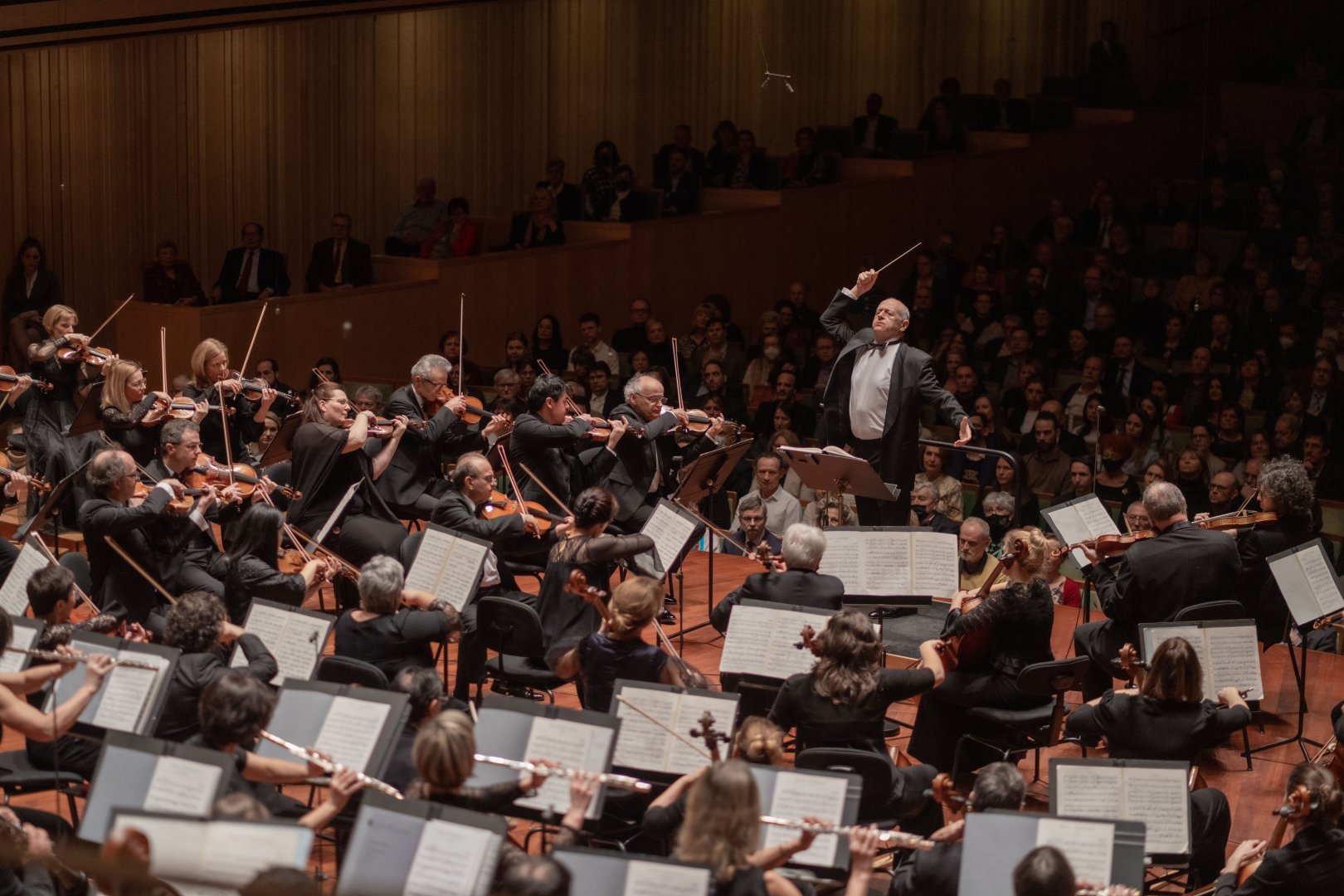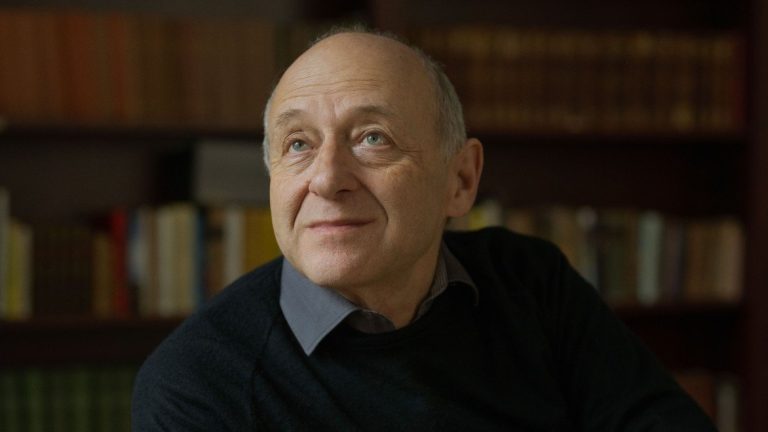The Budapest Festival Orchestra (BFO) begins its fortieth season, and is going to perfom with conductors and soloists such as Lahav Shani, Paavo Järvi, Gérard Korsten, Yefim Bronfman, Anna Vinnitskaya, and Veronica Eberle. In an exclusive interview with Iván Fischer, we also asked him what he would do differently if he were starting to build an orchestra now.
– Do you remember how the Festival Orchestra sounded in its first season?
– Sometimes I work with youth orchestras, and my memories come back, and I realise that this is how the BFO sounded in the early years. There is something charming and captivating about youthful enthusiasm, but at the same time, of course, it is unruly, and sometimes unstoppably quick. Perhaps the biggest difference is in the way we deal with time. At that time, the orchestra was like a turbo-engine vehicle, or a racehorse, it would have been like galloping all the time. Now it is like a sensitive steed, detecting and reacting to every movement, and reading minds.
– To what extent do local workshops still prevail in a music scene which becomes increasingly international? Can you hear the world-famous Hungarian string school in the sound of the BFO?
– I think so, yes. Although there is a significant difference between the Transylvanian violin school and the Budapest tradition, the BFO is a combination of the two. And let’s not forget: our violin school is related to the Russian one, which was established in St Petersburg by Lipót Auer. Many music teachers – Loránd Fenyves, Zoltán Székely, János Starker, and others – took the experience of this school even to America. The Hungarian string school is still most clearly audible here, but the gap is narrowing.
– Who are the soloists and guest conductors who have had the greatest influence on the development of the orchestra?
– Over the 40 years of the BFO, the visits of a few guest artists have left a particularly deep mark. I would like to start the list with Sándor Végh, who has practically opened the eyes of a generation of string players. Among the soloists, Zoltán Kocsis, György Pauk, András Schiff, Leonidas Kavakos, and among the singers Christine Brewer and László Polgár had the greatest influence on our musicians. But Gábor Takács-Nagy, Jordi Savall, Reinhard Goebel, and many others have played an important role in our development.
– How has the orchestra’s repertoire changed over four decades and what has had the biggest impact on it?
– There are actually two strands to the repertoire selection. On the one hand, the aim is to continuously cultivate the masterpieces of Bach, Mozart, Brahms, Mahler, Bartók, and others, to polish the performances, and to provide the audience with a high-quality performance of the basic repertoire. The other strand is enlargement, which we are developing in several directions. We are jumping backwards and forwards in time, so sometimes we perform Monteverdi’s works, sometimes Philip Glass’. But it’s also important to revive rarities: for example, Richard Strauss’s The Legend of Joseph, or Viktor Ullmann’s opera The Emperor of Atlantis left a deep impression on me. It is we who build the repertoire, not those who invite us: They are generally happy with the BFO’s colourful repertoire.

– In four decades, the world has changed around us: the Berlin Wall has fallen, digitalisation has changed our daily lives, and last year a war broke out in our neighbourhood. The symphony orchestra was one of the first important institutions of embourgeoisement in the 19th century and has successfully survived the 20th – but what will its role be in the 21st?
– Let me add the 18th century, because that’s when our ancestors, the court orchestras, really emerged. Certain kings or marquises would surround themselves with artists, and the bigger the ruler, the more trumpeters he would hire. Later on, the bourgeoisie just inherited the orchestras of the aristocracy, and of course in Beethoven’s time there was a revolutionary excitement in playing music together in large numbers. For the bourgeoisie, the orchestra was first and foremost a means of education, and educated people went to concerts, and the opera. Now, in a classless society, the role of education is melting away, and the question is what kind of demand a symphony orchestra will satisfy in the future. I think we definitely need reforms; we need to transform ourselves so that we can play the colourful repertoire that is the language of today.
– On the fortieth season of the BFO:
– In the BFO’s ruby anniversary season, Iván Fischer will conduct Debussy’s Pelléas and Mélisande, as well as works composed by Liszt, Bartók, Rachmaninoff, and a refreshing amount of Brahms’ pieces. In their concert titled Kompasszió (Compassion), they alternately play excerpts from Bach’s St Matthew Passion, and music of different genres in response to the world’s most pressing problems. Another highlight of the season will be Bartók’s The Miraculous Mandarin with the contribution of the Éva Duda Company. In addition to Iván Fischer, the orchestra will be conducted by such notabilities as Lahav Shani, Paavo Järvi, and Gérard Korsten. There will be no shortage of international soloists: Yefim Bronfman, Anna Vinnyickaja, Dejan Lazić, and Dmitrij Siskin will enchant the audience on piano, two superstars of the cello, Steven Isserlis and Kian Soltani, will also perform on stage, and Marc Bouchkov, Veronica Eberle, and Rachel Podger will show the infinite colours of the violin.
Season tickets for the concerts of the Festival Orchestra are available from 4 April! For more information click here.
We know of significant conductor-orchestra symbioses that have lasted for decades – Karajan in Berlin, Solti in Chicago – but it is hard to imagine the Festival Orchestra without Iván Fischer. If you were to appoint your successor, what qualities would you look for in them?
According to most of the reports, I’m only third with 40 my years – Zubin Mehta led the Israel Philharmonic for 53 years, James Levine was the music director of the Metropolitan Opera for 41 years. It is even possible that someone was left out of these statements; some research should be done in this respect on the internet. It’s not my job to find a successor. Let something else come after me, and that should be decided by those who live with the orchestra. But I would like to see a successor who feels a responsibility for the culture and education of the society, who does not see conducting as a career, who does not want to fulfil themselves, but sees music as a wonderful tool to do good.
Details of the anniversary season’s programmes are available here.
– If you were starting to build an orchestra now, what would you do differently?
– In 99% of the cases, I would do the same things, with just a few changes. For example, I would abolish the concept of section leadership and introduce full rotation. That would be difficult now, because we are all too used to it. But at least I gave my successor a piece of advice.











